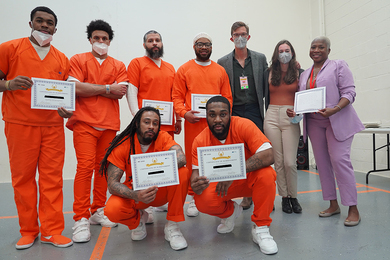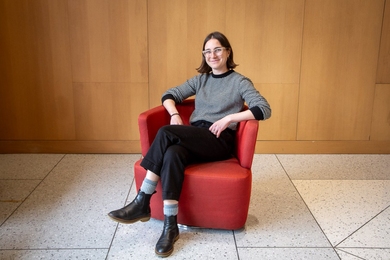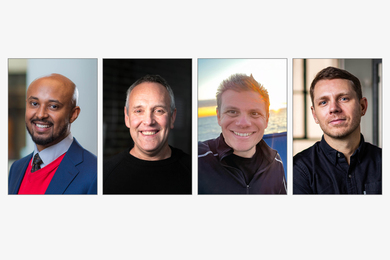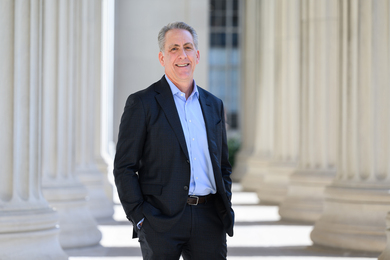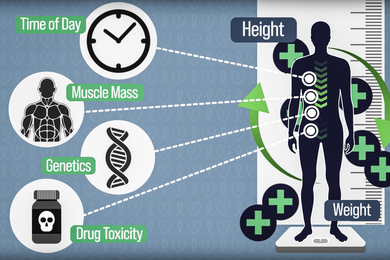Kresge Auditorium was packed. The audience was dead silent, straining to hear the softly spoken words of the woman on stage who was describing the night her date raped her.
The two were college freshman. They hung out together for a few weeks. They went on a dinner date. She was sober; he was nearly so. Back at her room, she said "No." He became angry and didn't leave. He slept in her bed while she sat huddled in a corner all night. The next morning, he convinced her to lie down and get some rest. Then he raped her, dressed and left.
It was 1991 when Katie Koestner was raped by her date at the College of William and Mary. He was found guilty by the college and suspended for the remainder of that term. The district attorney refused to prosecute. The student returned to the college the next year, even though he had been convicted a second time for raping another woman. Koestner, who later founded Campus Outreach Services, graduated magna cum laude four years later, despite a harrassment campaign launched against her by fellow students.
She described that series of events last Friday in her rape awareness talk to freshmen, titled "No--Yes."
Although attendance was mandatory, the mood in the room was anything but coerced; men and women listened raptly to Koestner's skillful delivery. Her demeanor was at once charmingly childlike and powerfully clear--her voice rose and faltered, her words were hesitant, then sure or funny, with an occasional breathy giggle. But no one left Kresge untouched by her story. The immediacy of the issue was clear.
At dinner with her "Prince Charming" that night in 1991, she felt a knot form in her stomach from something he said. "I completely ignored the knot. If I'd had more alcohol, I probably wouldn't have noticed it at all. But now I can't get rid of it," said Koestner while talking about the difficulty of knowing when to trust. "The entire issue might be crystal clear, except for the fact that I liked him."
To the women, she advised: "Decide what you're willing to take and what you're not and be strong for yourself."
"What's the difference between rape and sex?" she said. "Consent. And what's consent? A freely given, mutually understandable agreement. Silence is not the best indication of consent.
"If one brave man would stand up in the middle of campus and say 'Rape is wrong,' it would be about the same as my telling the story a thousand times," she told the men in the audience. "The end of rape won't be because of me. It will be because of you. What would each of you be willing to do to make a day with no rape? To make MIT a place of trust?"
After her presentation, during which she noted that 84 percent of rape victims know their rapist, and that one in four women will be sexually assaulted in their lives, Koestner opened up the floor for comments.
A male student in the back stood up then, addressing the other men in the room and encouraging them to do as Koestner had asked, to stand up against rape. After a moment of silence, another man stood and joined him, shouting, "I'll stand up." Within a few moments every man in Kresge stood, applauding their agreement.
Later, students expressed surprise at the event's impact.
"It was an eye-opener," said Rachel Lee of Rockland, Maine.
"I was going in expecting a dry litany--numbers, everyone is at risk--a rehash of stuff I'd already heard," said Michael Nagle of Los Angeles. "My friend and I almost didn't go. But I'm really glad I did. One of my best friends is a rape survivor. It's so emotional, so power-robbing. You realize that when you're at parties, there's more you can do if you're there and that [sexual assault against an intoxicated person] is happening."
"I think it was great that she talked to the guys. They probably weren't thinking about it before," said Lindy Peterson of Peoria, Ill.
"Her voice was so light. It carried, but you just wanted to listen," said Lindsey Christian of Washington, D.C.
"She was a phenomenal speaker," said Amy Brzezinski of Green Bay, Wis. "I learned to be really careful, to make good choices."
A version of this article appeared in MIT Tech Talk on August 29, 2001.

